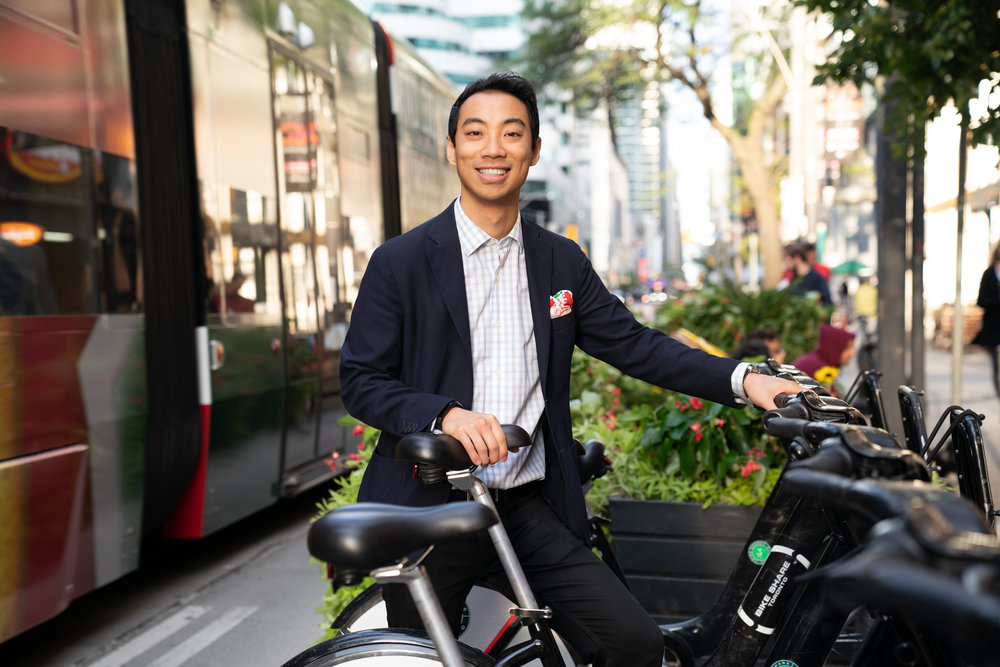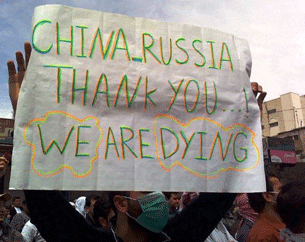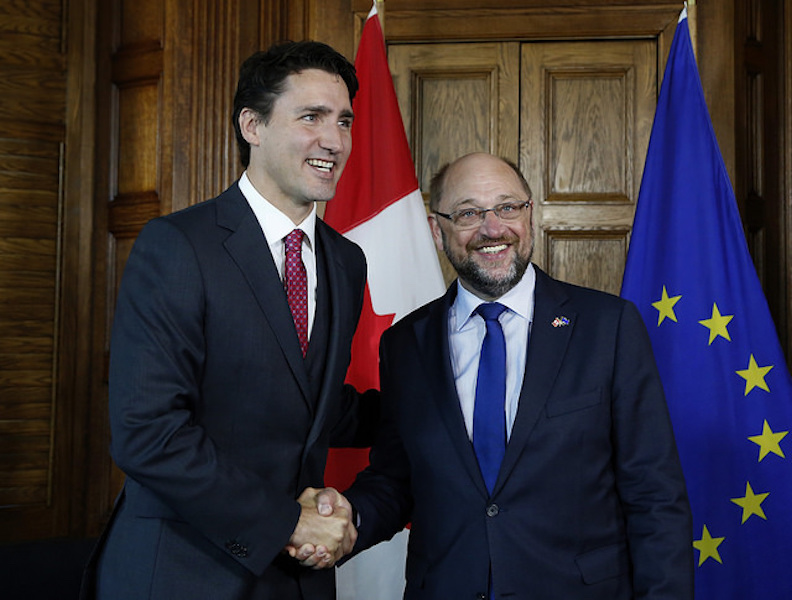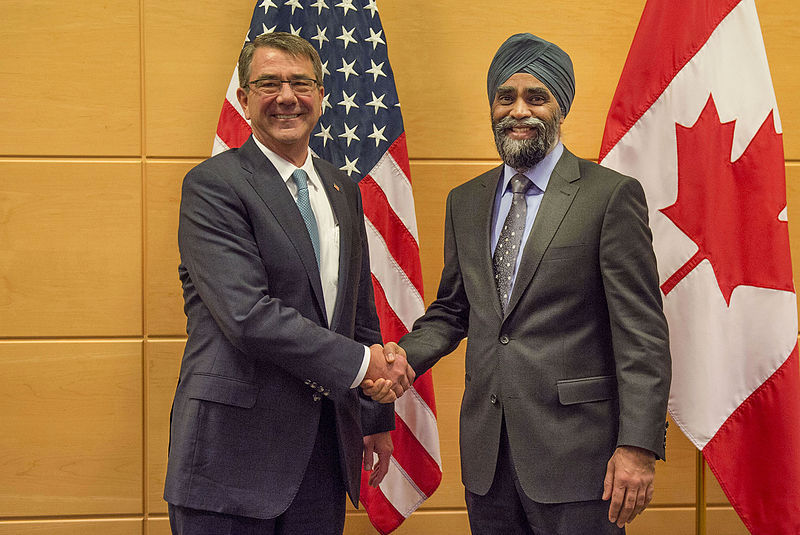Who is Kevin Vuong and What is TakeCare Supply?
With COVID -19 having such a devastating impact, people are looking for solutions and hope in this moment of unparalleled crisis. One person who is providing both is the NATO Association of Canada’s Board Director, Kevin Vuong. As a son of refugees from the Vietnam War, Mr. Vuong is dedicated to serving the country that welcomed his parents. As a cross-sectoral expert, he operates at the nexus of private, public, and community engagement, where he specializes in many areas such as strategic partnerships, community and government relations, stakeholder engagement, public and corporate affairs, social enterprise and social innovation.
Once Mr. Vuong realized that the pandemic created a global shortage in medical supplies, he went to work with his team, comprising Anna-Maria Mountfort and Larry Lau, to start TakeCare Supply. TakeCare Supply is a company that produces reusable masks that are made here at home, which helps to relieve pressure on getting supplies to those Canadians who need them most during the COVID-19 pandemic, specifically our frontline healthcare workers.
Mr. Vuong recently took some time out of his busy schedule to speak with Program Editor Martine Ghazouli and Research Analyst Antalya Popatia here at the NATO Association of Canada to discuss the importance of TakeCare Supply for Canada and to have a larger conversation pertaining to health security and supply chains more generally during this unprecedented time.
The importance of TakeCare for Canada
While TakeCare supply is filling a prominent gap in the Canadian supply chain for reusable masks during this time, it is also providing so much more to Canadians. Outside of its primary purpose, TakeCare Supply also keeps one hundred and fifty Canadians employed and has strengthened the Canadian economy further by using 100% cotton that is knitted and finished in Canada. In our conversation, Mr. Vuong explained that TakeCare has really demonstrated the importance of local procurements and the viability of local manufacturing. While Mr. Vuong mentions that nearshoring, or reshoring, had already started pre-pandemic for other companies, TakeCare aimed to focus its efforts to be a socially impactful company by starting this at the outset.
In focusing on using Canadian resources and manufacturing, TakeCare is also able to reduce its environmental footprint by a very large extent, as it does not rely on acquiring supplies and products from other countries. Along with the environmental benefits, the social impact is also increased by closer relationships with vendors and suppliers, which Mr. Vuong explains is the perfect opportunity to apply best practices and Canadian values toward everything throughout the supply chain, which would have been hard to do otherwise. In turn, Mr. Vuong and his team have been able to not only employ Canadians but ensure that they are all paid a living wage, are working in a safe environment, and ensure that everyone has access to the different services they may need to be able to live with dignity. Essentially, TakeCare has not only been creative in the purpose of its work but also the way in which this work has been executed; from the resources being used, to the people employed.
TakeCare and COVID-19
Despite all of the amazing work the TakeCare Supply team has done in recent weeks, it was evident in talking to Mr. Vuong that it has not been without its challenges. Mr. Vuong explained that there were two major obstacles while trying to bring TakeCare Supply to life in the midst of a pandemic – the first being that they have been faced with scarce resources and the second being that they are experiencing difficulties with new COVID-19 warehouse protocols.
While nearshoring might seem relatively simple, it is often not possible without some connection to larger global supply chains. For example, Mr. Vuong and his team have been facing issues procuring elastic, fabric, and human capital in recent weeks, which has highlighted the vulnerabilities in our global supply chain. When the team was able to find elastic, a very necessary part of manufacturing reusable masks, they had to purchase it at almost ten times the normal cost. Likewise, finding people who were willing and able to work also proved difficult, as many individuals did not feel comfortable going to work, or simply could not due to other added layers of complexity, such as having children without anyone to care for them during work hours with the lockdown in place. To combat this, Mr. Vuong and his team were able to get fabric and materials to these individuals so that they have the ability to work from home and they continue to look for local alternatives to all components of their manufacturing process to avoid astronomical prices and difficulty procuring specific items.
Beyond TakeCares’ difficulties in finding resources and workers, they were also encountering problems with new COVID-19 protocols, which emphasize social distancing and the importance of minimizing the number of individuals in a confined space. On the TakeCare factory floor, the same level of production that might have occurred pre-pandemic is just not possible because Mr. Vuong and his team are trying to ensure that everyone is social distancing for their own safety.
Keeping all of this in mind, it is apparent what an amazing feat TakeCare really is. Mr. Vuong acknowledges that while TakeCare started from the needs borne out of COVID-19, it really relates back to the fact that most people are looking for local solutions to support neighbours, friends and family within our communities and that it is not only feasible but can be much more fruitful in many ways. The fact that TakeCare not only has reusable masks made in Canada by Canadian workers but that they are also looking to further “Canadianize” the supply chain really emphasizes that this can be done, and it is impactful.
NATO, Health Security, and Supply Chains
In our broader discussion about NATO, health security and supply chains, Mr. Vuong explains that it is in fact a matter of national security for Canada to have the ability to produce personal protective equipment, among other things, to keep Canadians safe. His argument for this being a matter of national security relates to the social implications of health deterioration, as it affects one’s ability to be able to earn a living and therefore pay for food, rent, etc. and the importance of personal protective equipment to prevent this from happening. COVID-19 has exemplified the national repercussions of health risks without looking at health deterioration per se, but rather the implication that one’s health might possibly deteriorate if they were to contract a highly communicable virus, such as COVID-19, and the associated economic fallout of lockdowns, shutdowns, and social-distancing measures to stop its spread proactively. If Canada were to have the ability to produce its own protective equipment, our reliance on other countries for supplies, equipment and resources would decrease exponentially and our response time to a pandemic of this nature will be enhanced due to not having to rely on the larger supply chain for necessary items, which is heavily impacted by any external changes.
As a private citizen and co-founder of a Canadian small business, Mr. Vuong believes that, along with Canadian businesses taking a lead in contributing to our nation’s prosperity going forward, NATO will continue to play a key role as well. Mr. Vuong highlighted in our discussion that Canada is a maritime trading nation, which is a part of the larger North Atlantic region where a tremendous amount of trade occurs. In sharing expertise, skills and knowledge at an accelerated rate due to the lasting effects of COVID-19 going forward, it can be expected that our shared values of the rule of law, democracy and human rights will be strengthened and seen as a pillar of our new world after this pandemic. In strengthening our relationship with our North Atlantic allies, Canada’s prosperity will increase in tandem.
Key Takeaways
Starting out as a means to help relieve pressure on the supply chain for reusable masks, TakeCare Supply has morphed into a model company that many others in Canada should look to emulate. Not only has it had an immense impact on Canadians and the new wave of Canadian businesses, it has also had much larger social implications. Though TakeCare Supply did not come to be what it is today without challenges, it has exposed the necessity of having Canadians produced protective equipment and continue to develop strong relationships with allies in the North Atlantic region.
Featured Image: Kevin Vuong next to some electric bikes via Kevin’s website
Disclaimer: Any views or opinions expressed in articles are solely those of the authors and do not necessarily represent the views of the NATO Association of Canada.




